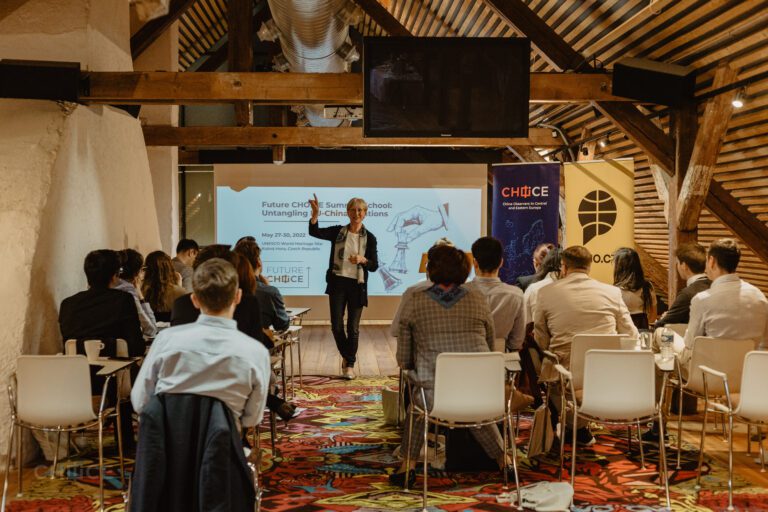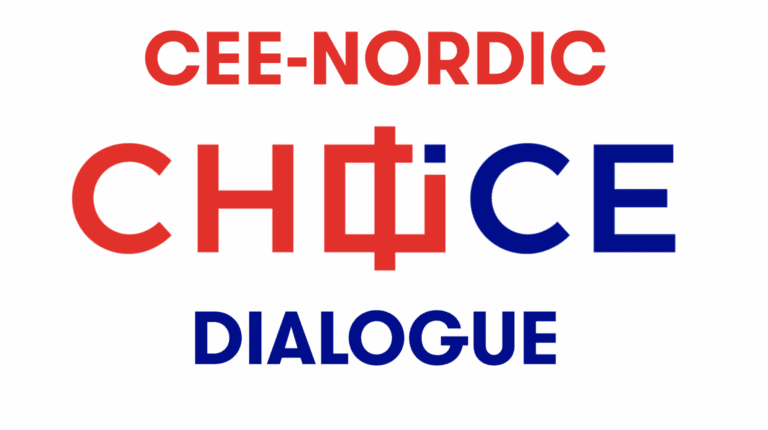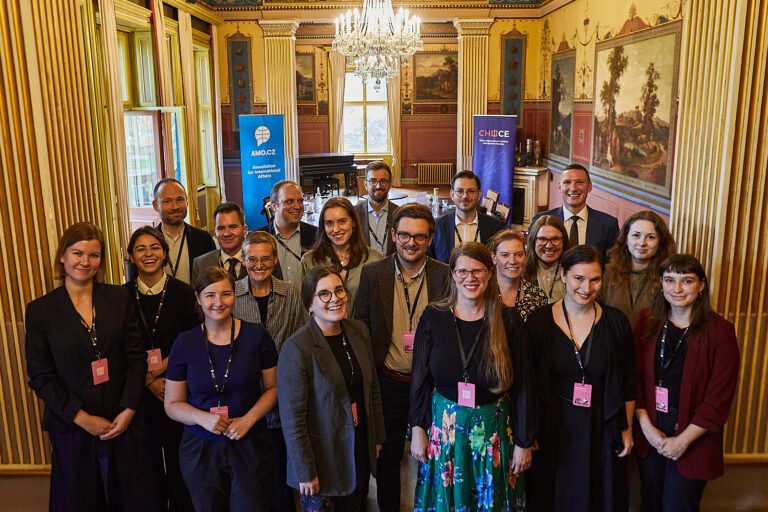China’s Rapidly Developing Disinformation Requires a European Response

As China’s ‘mask diplomacy’ has receded, ‘vaccine diplomacy’ has quickly taken its place and added vigor to China’s efforts to “tell the China story well” in Europe.
Amidst these efforts, Brussels has been caught unprepared by an escalation in Chinese propaganda and disinformation efforts. Clearly, EU leadership still grapples with the “partner, rival, competitor” dilemma, manifested most prominently in its approach to and conclusion of the Comprehensive Agreement of Investment (CAI) at the close of 2020. China seeks to exploit a lack of clarity and cohesion across the bloc, both in Brussels and across national capitals, sowing discord through various measures to influence and distort information flow.
To address these major challenges, CHOICE hosted an invitation-only roundtable entitled “Responding to China’s Disinformation Challenge” alongside the European Pirate Party. The event was moderated by Czech Pirate MEP Markéta Gregorová, Coordinator of Special Committee for Foreign interference in all Democratic Processes of the EU, Including Disinformation (INGE).
Evolution in Approach
Kicking off the discussion, MEP Gregorová stressed that foreign interference has been increasingly on the agenda of the European Parliament, with efforts to increase awareness but also devise effective countermeasures, getting more and more attention.
An important first step in assessing Chinese efforts in the information space highlighted by the speakers was the simple identification of the means by which influence campaigns are conducted. CHOICE founder Ivana Karásková pointed out that Chinese efforts have evolved over time, moving from investments into local media that have clearly influenced narratives presented, to hiring PR agencies to subvert media presentations, to paying for supplements disguised as normal articles to fool readers, and, to an increasing extent, caustic “wolf warrior” rhetoric and bot armies on social media.
Karásková pointed to China’s gleanings from Russian propaganda, particularly in the use of alternative media and local proxies. Matej Šimalčík, Executive Director of the Central European Institute of Asian Studies (CEIAS), pointed to Slovak lawmaker Ľuboš Blaha, Czech conglomerate and China-investor PPF and an instrumentalized diaspora community across nations as key proxies for Chinese interests. Meanwhile Confucius Institutes attempt to gain a foothold in academia across CEE nations.
Nonetheless, Justyna Szczudlik, Deputy Head of Research and Coordinator of Asia-Pacific Program at the Polish Institute of International Relations (PISM) countered that a lack of cultural awareness and a focus on domestic audiences leaves Chinese propaganda less effective than its Russian counterpart’s efforts.
Szczudlik surmised that these weaknesses, among other missteps, have relegated Chinese disinformation efforts’ true effectiveness within V4 countries. Still, AMO Research Fellow Alžběta Bajerová noted China has far vaster resources than Russia and its ability to mature and progress in its propaganda efforts should not be taken for granted.
All agreed that the largest challenge ahead remains in cyberspace as China continues to hone its efforts in online information warfare and devote much of its resources to the digital arena.
Adjusting the Angle
Regardless of method, the expert panel noted that China has been nimble in shifting narratives it pursues to pull CEE nations closer to China.
For example, a noticeable shift was marked in moving from shared identity based upon a socialist past was abandoned as Greece joined the 17+1 cooperation toward alternative linkages like the shared status as victims of hegemonic and colonial powers throughout history.
More recently, Szczudlik noted that China is focusing on presenting itself as a benevolent helping hand, whether it be in the BRI, investment projects, medical supplies, or, most recently, vaccines. This of course comes after the recent flop of the aforementioned 17+1 format, driven by what many participants regarded as unkept promises. This sentiment was particularly felt among Baltic nations, which have been the most vocal about their soured opinion on the cooperation.
To be sure, while the most recent efforts in mask and vaccine diplomacy haven not been met with wide acclaim, they have proven successful in specific nations and regions. Perhaps foremost among these nations is Serbia and the Balkan countries more broadly, which Stefan Vladisavjljev, Program Coordinator for the Belgrade Fund for Political Excellence, outlined at length.
Vladisavljev explained that Chinese influence in Serbia specifically is closely intertwined with the country’s major political figures – not least of which is President Aleksandar Vučić. He pointed to the country’s struggle with COVID-19 and China being painted as a savior in desperate times as a key narrative that aided not only China, but Vučić’s estimation by the public in securing such aid.
Such a narrative is cemented through media influence, both state media accounts peddled through China Radio International and CGTN, but through direct ownership or direct editorial control by China or its proxies on the ground.
In many cases, this not only improves the image of China, but lessens the popularity of the EU among the populace of the nation that still remains an EU candidate. The case of Serbia serves as a clear example of the damage that can be wrought when political elites willingly co-opt disinformation and propaganda campaigns.
Recommended Responses
To be sure, there is still reason to be optimistic about European progress on this front.
Šimalčík observed recent attempts by the Chinese embassy in Slovakia to secure publication of overtly propagandistic narratives, which local outlets rebuffed the request. He lauded this is as a good sign, noting that local media is displaying a stronger resilience to propaganda it had fallen for in the past.
Moving forward, he called for a multifaceted approach that emphasizes full transparency on companies and media linked to authoritarian regimes and a much more stringent anti-money laundering regime in the EU. The success of Slovakia in adopting such measures was of paramount importance in uncovering and untangling opaque ownership structures, he explained.
Karásková joined in to add that current FDI screening mechanisms are an important step, but that the inclusion of media as a strategic industry within these frameworks is absolutely crucial. A clearer EU-level directive on this front would be ideal as it would also undercut national-level corruption or gatekeeping.
Finally, Bajerová touched upon the greatest challenge in the new online frontier of information warfare. She explained that multidimensional influence campaigns are only set to increase and adapt, with hackers, bots, and other disruptors operating with evermore sophisticated technology.
As China’s online approach and efforts are orders of magnitude larger than Russia’s, both individual CEE nations and the EU must take firm steps to combat disinformation as it festers online.
Click here for a thread of key insights live tweeted from the roundtable.
Written by
CHOICE
CHOICE is a multinational consortium of experts providing informed analysis on the rising influence of the People’s Republic of China within the countries of Central and Eastern Europe (CEE).


